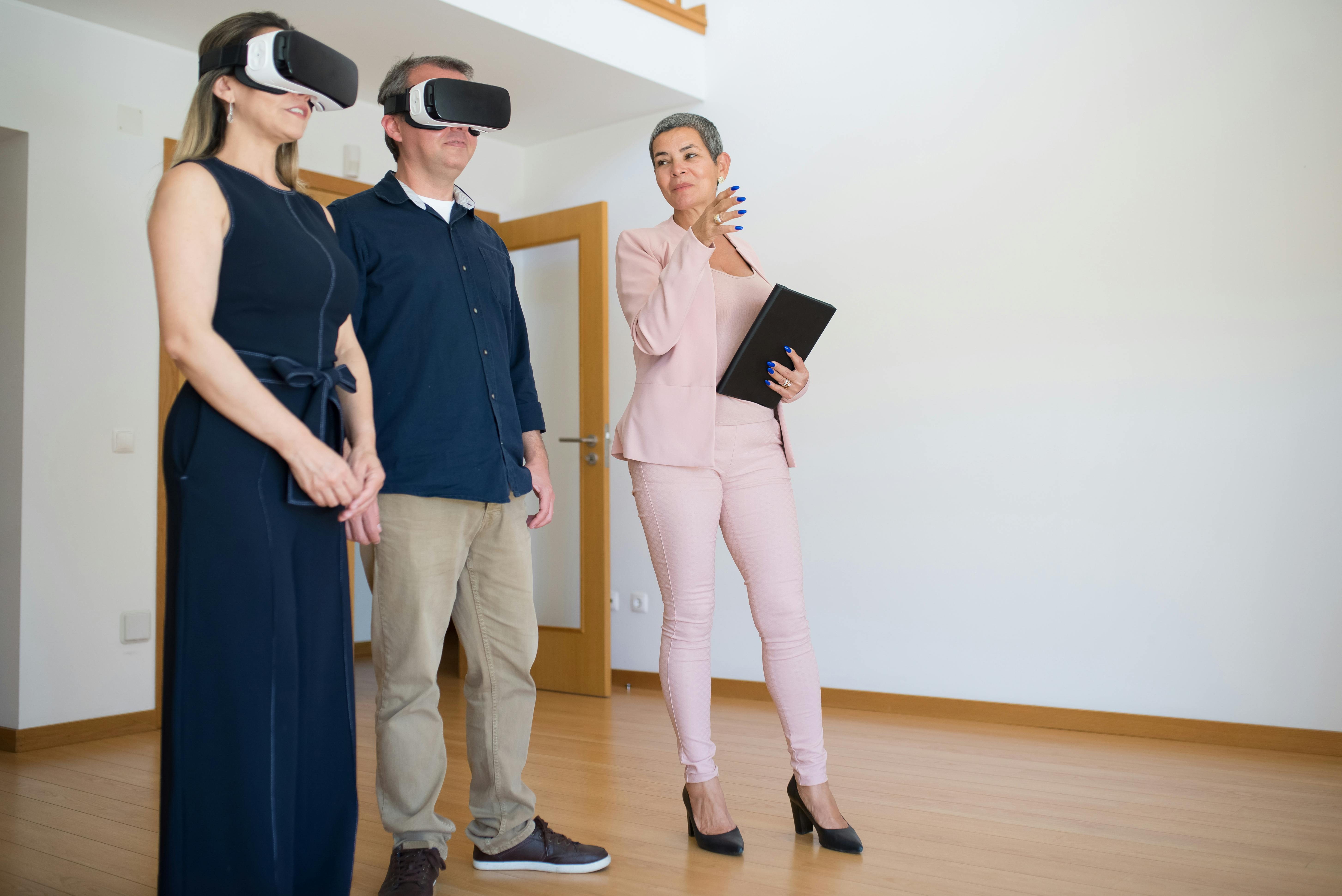The landscape of the housing industry is evolving at an unprecedented rate, largely due to the infusion of cutting-edge technology. Whether you’re looking to buy, sell, or rent a property, the latest technological advancements are reshaping the way we interact with the housing market.
This transformation is particularly evident when you play in Michigan’s vibrant real estate scene, where tech innovations are driving efficiency, accessibility, and sustainability. Let’s delve into how technology is making the waves and revolutionizing the housing industry.
Virtual Reality and Augmented Reality
One of the most significant technological impacts on the housing industry is the use of Virtual Reality (VR) and Augmented Reality (AR). These new tools have revolutionized the way potential buyers and renters experience properties and it is in use by top real estate technology companies all over the world.

Virtual Tours
Gone are the days when a prospective buyer had to physically visit multiple properties to make a decision. With VR, individuals can take immersive virtual tours of homes from anywhere in the world.
As per the survey result of National Association of Realtors (NAR), it has been found that 87% of buyers used virtual tours during their home search. This not only saves time but also allows buyers to view numerous properties in a single day without the physical and logistical challenges of travel.
Augmented Reality Applications
AR based applications enable potential buyers to visualize how a particular space would look with their furniture or favorite decor. With this, you can fill a particular area with virtual objects like bed, TV, table, dining table, wardrobe and get an idea of whether the room space or property space is enough for you or not.
This personal experience helps buyers visualize themselves in the new home, and in the long run is a huge help in finding your dream home. Personal experiences like viewing and walking around a home make you feel like you are living there. This has a profound impact on your home buying decision. The ability to visualize yourself in the new home makes your search easier and helps you land on your dream home.
Smart Homes and IoT
The concept of smart homes has gained immense popularity in last few years, thanks to the Internet of Things (IoT). Smart home technology offers a new level of convenience, security, and energy efficiency that was previously unimaginable and it is one of the best real estate technologies.
Intelligent Home Management
Smart thermostats, lighting systems, smart toilet, and security cameras are just a few examples of how IoT is making homes more efficient and secure. Homeowners can control all these connected systems remotely via smartphones or tablets having 4G or 5G connectivity , allowing for energy savings and enhanced security.
Voice-Activated Assistants
Devices like Amazon’s Alexa and Google Home have become central hubs for managing various smart home devices. These voice-activated assistants can control lighting, heating, security systems, and even household appliances, offering unparalleled convenience. In the future we may also see smart home robots, which you can control from your smartphone and give them instructions in advance about tasks.
Big Data and AI
Big data and artificial intelligence (AI) are other technological forces transforming the housing industry. They offer predictive insights and personalized experiences that are reshaping real estate transactions.
Predictive Analytics
Real estate companies now leverage big data to analyze market trends, property values, and buyer preferences. Predictive analytics help in making informed decisions about when to buy or sell, ensuring better financial outcomes for all parties involved.
AI-Powered Customer Service
AI-driven chatbots and virtual assistants provide instant responses to customer inquiries 24/7,, improving the overall user experience. They can handle everything from scheduling property viewings to answering detailed questions about listings, making the process more efficient and user-friendly.
Blockchain and Real Estate Transactions
Blockchain technology, best known for powering cryptocurrencies like Bitcoin, is also making inroads into the housing industry. Its ability to provide transparent, secure, and efficient transactions is highly beneficial for real estate.
Transparent Transactions
Blockchain ensures that all transactions are transparent and immutable, reducing the risk of fraud. This is particularly important in real estate, where large sums of money are involved, and trust is paramount.
Smart Contracts
Smart contracts, powered by blockchain, can automate and secure various aspects of real estate transactions. These contracts execute themselves when predefined conditions are met, streamlining processes like property transfers and lease agreements.
Sustainable Construction Technologies
Sustainability is a growing concern in the housing industry, and technology is playing a crucial role in promoting eco-friendly construction practices.

Green Building Materials
Advancements in material science have led to the development of sustainable building materials that reduce environmental impact. These include recycled steel, bamboo, and environmentally friendly concrete alternatives.
Energy-Efficient Designs
Technology is enabling the design of more energy-efficient buildings. From solar panels and green roofs to energy-efficient windows and insulation, modern homes are being built with sustainability in mind.
Online Real Estate Platforms
The advent of online real estate platforms has democratized access to property information, making it easier for buyers and sellers to connect.
Comprehensive Listings
Platforms like Zillow, Realtor.com, Redfin, and Trulia boast millions of listings. These type of applications provide comprehensive property listings as these give a detail information about property including the high-resolution images, virtual tours, and owner’s contact. This transparency helps buyers make informed decisions and saves time and effort compared to traditional methods.
Market Analysis Tools
These platforms often include tools that provide market analysis, helping users understand property trends and valuations. This data-driven approach empowers buyers and sellers to negotiate better deals.
The infusion of technology into the housing industry is reshaping every aspect of buying, selling, and living in homes. From the way we tour properties using VR and AR, to the convenience offered by smart home devices, to the transparency provided by blockchain, technology is making the housing market more efficient, accessible, and sustainable. As we continue to play in Michigan and beyond, embracing these innovations will be key to staying ahead in the ever-evolving real estate landscape.
This is the future of real estate technology and you must know about it. Don’t forget to share it with others and keep visiting for more updates.

